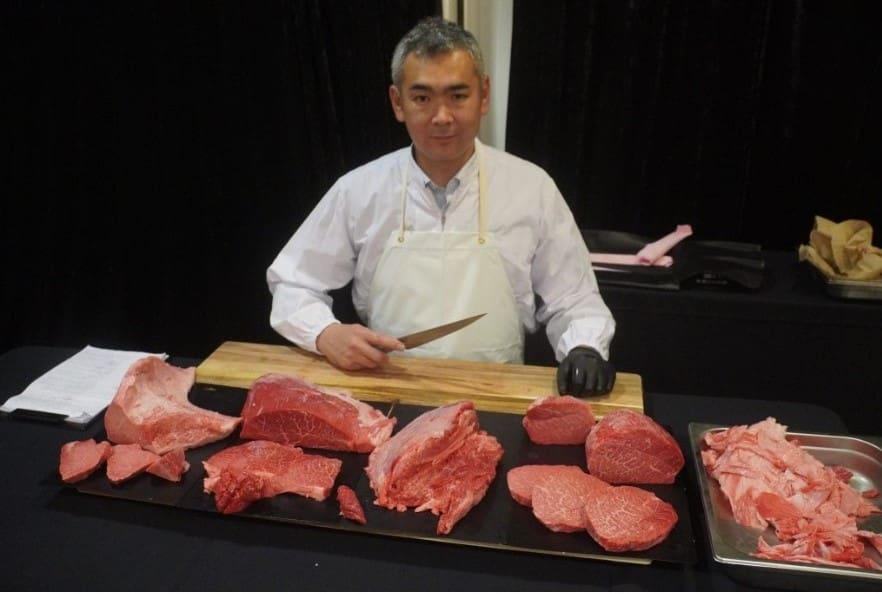
JAPAN has resumed Wagyu beef exports to Australia and some other international markets this week, after voluntarily suspending shipments earlier this month following the country’s first Lumpy Skin Disease detections.
Japan reported its first LSD case back on 6 November, swiftly imposing a temporary suspension on its Wagyu beef exports.
DAFF issued this biosecurity advice back on 18 November, ten days after Beef Central first reported the outbreak.
By November 20, dozens of infected cattle had been confirmed on eight farms in the Fukuoka area. The prefectural government implemented plans to have about 5000 cattle on 50 farms within a 20km radius of the infection zone vaccinated by the end of March.
Following discussions between the Japanese Ministry of Agriculture, Forestry and Fisheries and the Australian authorities, the suspension was lifted this week, with initial trade limited to beef from regions other than the Fukuoka area where the only cases of LSD were found among dairy cattle. Local Australian importers of specialised Japanese-produced Wagyu beef received import permits for boneless beef from Monday (25 November).
Suspensions to other customer countries including Hong Kong and Taiwan (dairy products only) were lifted back on 18 November, while trade to the United States remains closed for the time being for beef from vaccinated cattle, a source close to the trade told Beef Central. Discussions are underway about a system to confirm that vaccinated cattle are not being delivered to Japanese export beef processing facilities servicing the US.
Japan supplies only small-volume, but extremely highly priced consignments of highly marbled Wagyu beef into Australia each year, for use mostly in five-star restaurants and hotels.
Prior to the lifting of the suspension, Beef Central asked a number of Australian supply chains specialising in production of high-end Fullblood Wagyu beef whether inquiry had lifted since Japan had imposed its suspension three weeks ago. Responses were mixed, with some saying inquiry had noticeably grown, while other said there was no clear response, at that early stage.
Biosecurity changes
Australia late last year amended its meat import guidelines relating to LSD risk, to align with OIE international standards.
The Department of Agriculture’s review of the biosecurity risks of LSD via imported fresh or frozen beef completed last December changed the previous policy established in 2017, where beef could only be imported from LSD-free countries.
“The final report concludes that sufficient published science exists, consistent with international standards, to demonstrate that transmissibility of LSD through bovine skeletal muscle that has been produced in accordance with Australian and international standards achieves Australia’s appropriate level of protection, without LSD-specific conditions,” the report said.
“The report advises that certification of country freedom from LSD to cover importation of fresh beef derived exclusively from bovine skeletal muscle from approved countries is unnecessary on biosecurity grounds,” it said.
Some have interpreted the regulatory change as reflecting a need for Australia to prepare for the opposite eventuality – an LSD outbreak in this country, and what impact that might have on our own international beef exports. A zone-based exclusion would be the best possible outcome if that was to occur, sources told Beef Central.
Australia’s Biosecurity Import Conditions database (BICON) has been updated to reflect the changes described above, allowing for trading partners to propose additional certification to ensure that trade can continue, should their animal health status for LSD change, DAFF assistant secretary for animal biosecurity, Dr Peter Finnin said.
However as current biosecurity risks are effectively managed under existing requirements, all existing import permits and trade arrangements for fresh beef and beef products remained valid, DAFF said.
“This approach ensures continuity of trade. It also manages the biosecurity risks in accordance with Australia’s appropriate level of protection and meets international trade obligations, DAFF said.
